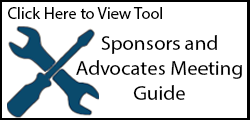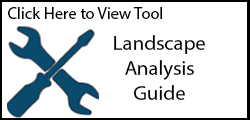Plan Your Workgroup
Before any external communication, applications, scheduling, or meetings take place, the project manager should understand the project intent, goals and process, including any relevant timelines or deadlines and who must be included for the workgroup to successfully complete its work. Planning cannot be overlooked; it is the primary building block for every decision that follows.
Meet with Legislative Sponsor(s) and Advocates
Agency legislative directors and all relevant staff who will support the workgroup should meet with the primary sponsor(s) of the underlying legislation and key advocates, so the workgroup has an accurate understanding of the legislative intent. The workgroup manager should meet with all relevant, internal staff to gain any important agency insight. As a group, develop a working definition of what “lived experience” means for this project. Defining “lived experience” clearly now will prevent issues when recruiting and selecting Community Workgroup Members. This is also an opportunity to hear directly from the sponsor or advocates who worked on the bill about what their intentions for the project are and what the desired outcomes are in plain language.
Scenario:
A piece of legislation was passed with the broad intent of addressing mental health needs in children via a workgroup managed by your agency. In this case, would you interpret “lived experience” to only mean children, under 18 years of age, who have mental health conditions can serve on the workgroup? Because very young children may be unable to serve on a government workgroup, it would make sense to broaden the definition of “lived experience” to include people who are now adults, but who experienced mental health challenges during their childhood. You may also decide that “lived experience” can include parents, caretakers or even teachers who live or work with these children every day and can provide the lived experience perspective.
In this scenario, the meeting with sponsors and advocates is an essential step in order to fully understand the nuance, intent, and what “lived experience” means in this context before you begin recruitment and external messaging. Use the Sponsors & Advocates Meeting Guide below to plan and execute an effective sponsor/stakeholder meeting to address questions like these in the early stages of workgroup development.
Conduct Equity Lens and Landscape Analyses
A Landscape Analysis is a brief and simple research effort to understand the demographic representation, resources, and needs of a group of people. Conducting a landscape analysis should not take more than an hour or two and will help you understand the underrepresented population or issue in question.
You must understand how different community groups are impacted by the subject area of the workgroup so you know which community perspectives must participate on the workgroup. An equity lens analysis and landscape analysis are tools to help you identify those perspectives.
Scenario:
Your workgroup is about people with student loan debt, and you need 3 people with lived experience to serve as Community Workgroup Members. You could easily recruit the first 3 people who apply who happen to have student loan debt, but what if those first 3 people only have about $5,000 of debt each? Would that be an accurate representation of lived experience?
A quick online search would tell you that the average amount of student loan debt in Washington State is $33,746, so your 3 workgroup recruits might not have firsthand knowledge of the struggles that people with higher debt face. A landscape analysis would help understand the subject matter enough to make good planning decisions.
Use the tools below to guide you through conducting a Landscape Analysis and an Equity Lens Analysis.
Meet with the Relevant “Consulting State Entity”
After you have done the baseline research to understand the community in question, agency staff are required to meet with the relevant “Consulting State Entity” if one exists for the topic/population in question.
Present your landscape analysis to the Consulting State Entity partners, and ask them to help you identify any knowledge gaps you may have about the population. Staff at the Consulting State Agency in question may be aware of community leaders, nonprofits, or efforts that you wouldn’t have found simply by searching online during your landscape analysis. They may also know community members who would be good candidates for the workgroup and can help with recruitment later on, once you’ve established a relationship with them.
Some examples of Consulting State Entities that can assist with reaching out to specific demographic groups are:
- Commission on African American Affairs (CAAA)
- Commission on Asian Pacific American Affairs (CAPAA)
- Commission on Hispanic Affairs (CHA)
- Washington State LGBTQ Commission (LGBTQ)
- Washington State Women’s Commission (WSWC)
- Governor’s Committee on Disability Issues & Employment (GCDE)
- Governor’s Veterans Affairs Advisory Committee (VAAC)
For a complete, up-to-date list of all of the state boards and commissions, refer to the Governor’s Board & Commission Profiles: Board & Commission Profiles | Governor Jay Inslee (wa.gov)
In addition to the Consulting State Agencies described above, you may also consider reaching out to the following groups for support in preparing to work with underrepresented communities:
- Your agency’s PEAR team, which is a group of staff that convenes in accordance with Executive Order 22-04 to establish and promote Pro-Equity Anti-Racism within agencies.
- Statewide Business Resource Groups (BRGs), which consist of state employees who come together to share knowledge and build community around shared identity and experiences.
- EQUITY’s Community Advisory Board (CAB), which serves as a guiding body and partner to the Office of Equity to create a Washington for all. The CAB is available for consultation with state agencies as needed depending on capacity. CAB Program Managers will serve as an initial contact for agencies, and may be reached via email at cab@equity.wa.gov
Open Public Meetings Act (OPMA) Compliance
Determine whether or not your workgroup is responsive to the Open Public Meetings Act (RCW 42.30), and whether you will need to be in compliance with those rules. Groups that are subject to the OPMA must take extra steps to ensure that their meeting is accessible to the public by making it open to all, recorded, and must share things like agendas and notices in advance. If you are not sure, check with your supervisor or agency AAG for support.
If your workgroup is subject to the OPMA, a good tool for conducting meetings is to use the Zoom “Webinar” type of meeting which allows the user to create “panelists” who can speak in the meeting and make use of the chat, while public attendees may join as “guests” and do not have the ability to interrupt the meeting discussion.
To learn more about the Open Public Meetings Act, refer to this handy guide created and distributed by the Washington State Auditor’s Office - The Open Public Meetings Act: How it applies to Washington Cities, Counties, and Special Purpose Districts.
Back | ToolKit Home | Next


